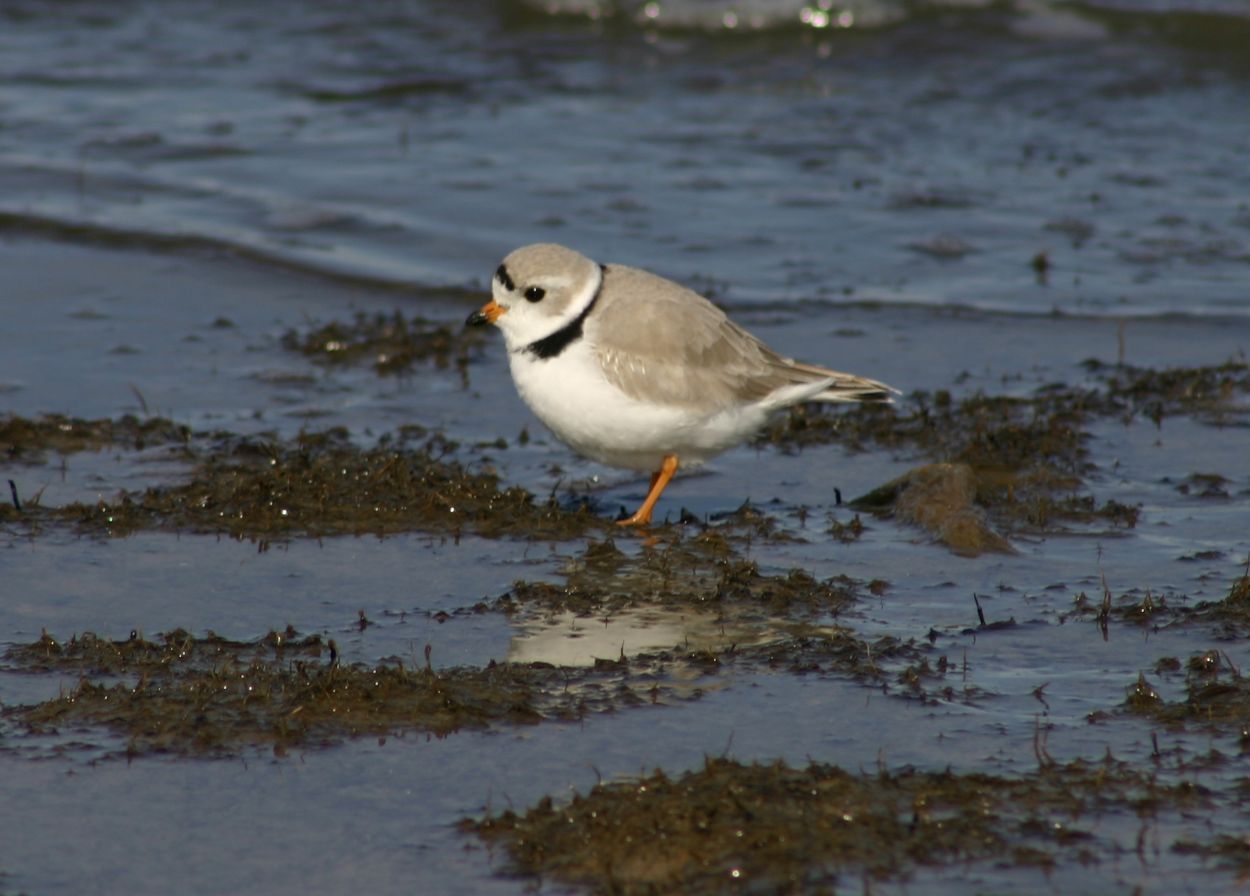The Point at Cape Henlopen Opens Aug. 30

The piping plover is an endangered species that nests on the beach of the Point in Cape Henlopen State Park. /DNREC Division of Parks and Recreation photo
The Delaware Department of Natural Resources and Environmental Control will reopen a stretch of oceanside beach at The Point at Cape Henlopen State Park by Saturday, Aug. 30. The Point’s bayside beach will remain closed until Oct. 1 for use by shorebirds migrating south for the winter.
The Point has closed annually since 1993 each March for the benefit of threatened and endangered beach-nesters and migratory shorebirds, including piping plovers, oystercatchers, least terns, red knots and other species before reopening in the late summer-early fall for beachgoers and anglers.
The DNREC Divisions of Parks and Recreation, Fish and Wildlife and Watershed Stewardship have worked together since 1990 to implement a management plan to increase beach-nester and migratory shorebird populations. Closing The Point to park visitors provides an area of undisturbed beach and intertidal habitat for a host of shorebirds, gulls, terns and other waterbirds to rest and feed after the breeding season, one of only three in the state.
During this year’s closure, nine piping plover chicks successfully fledged from nests at The Point. More than 27 least tern chicks hatched, and broods are still active on the beach as well as fledgling least terns from other sites. An additional full report on beach-nester activity in the closed area will be released by the Division of Fish and Wildlife after the conclusion of the breeding season.
While piping plovers nest in isolation and their nests can be enclosed with protective fencing, least terns nest in colonies and cannot be enclosed to protect them from predators. All active broods of least terns are on the oceanside of The Point and may still be present after the area opens, so the divisions ask for caution when driving or walking in this area.
Thus far in 2025, 24 species of shorebirds, including breeding species as well as migrant such as federally threatened red knot, 10 species of terns including the federally threatened roseate tern, and six species of gull are among the species observed at The Point since the area closed on March 1.
About DNREC
The Delaware Department of Natural Resources and Environmental Control protects and manages the state’s natural resources, protects public health, provides outdoor recreational opportunities and educates Delawareans about the environment. The DNREC Division of Parks and Recreation oversees more than 26,000 acres in 17 state parks and the Brandywine Zoo and the Indian River Marina. For more information, visit the website and connect with @DelawareDNREC on YouTube, Facebook, Instagram, X (formerly known as Twitter) or LinkedIn.
Media contact: Beth Kuhles-Heiney, elizabeth.kuhlesheiney@delaware.gov; Michael Globetti, michael.globetti@delaware.gov
###
Legal Disclaimer:
EIN Presswire provides this news content "as is" without warranty of any kind. We do not accept any responsibility or liability for the accuracy, content, images, videos, licenses, completeness, legality, or reliability of the information contained in this article. If you have any complaints or copyright issues related to this article, kindly contact the author above.
